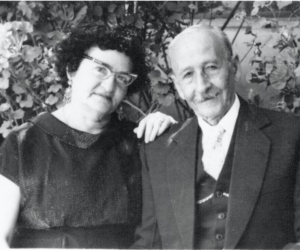
This week we return to the era of regular Classical music. This time featuring the German composer, Felix Mendelssohn. He was born in 1809 in Hamburg, Germany. He was considered a child prodigy at the piano and at age 7 was sent to Paris to study the piano under master teachers in the city. Interestingly, Felix had an older sister, Fanny who was 4 when Felix was born and was considered at the time to be a far superior musician than her younger brother. Unfortunately, it was an era where female musicians were scorned and ignored. The only outlet available to Fanny for her compositions is to publish them under Felix’s name and much of opus 8 and 9 is actually Fanny’s music.
Nonetheless, Felix’s reputation as a composer and pianist grew as he became older. He was a prolific composer generating hundreds of individual pieces. He regularly toured Europe and England playing concerts of not only his own music but also Bach. He was instrumental reigniting an interest in Bach’s music in Germany after it had fallen out of favor for about 50 years.
Mendelssohn was born into a prominent Jewish family of wealthy bankers. However, the family quietly renounced their Jewish faith and become Christian. While Felix understood the need for changing faiths to avoid further discrimination, it bothered him for the rest of his life.
The piece of music I am highlighting today comes from Mendelssohn’s major effort at composing works for the piano. He wrote 8 books called Songs Without Words over a 16 year period where he tried to capture various emotions in its 56 pieces of music. Out of the 56 songs I have chosen my personal favorite, Book 3, number 6 which he nicknamed “Duetto”. It involves weaving together two melodies hence the name Duet. It was written by Mendelssohn for his wife in 1837 on the occasion of his marriage to Cecile, the daughter of a Christian clergyman. The music captures Felix’s feeling with low bass notes while Cecile’s melody remains in the treble clef and eventually they merge. The couple eventually had 5 children together.
I would be remiss in not also pointing out that Felix Mendelssohn had a similar problem as many other famous composers in handling their outsized emotions. Felix carried on a long term adulterous relationship with Swedish opera singer, Jenny Lind. Felix died in 1847 of a stroke at the relatively young age of 38 with most of his composing years ahead of him.
















